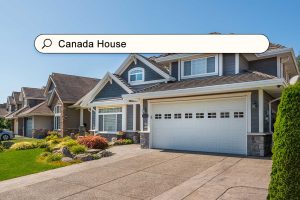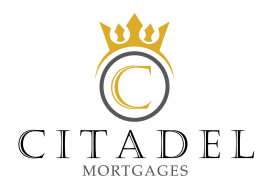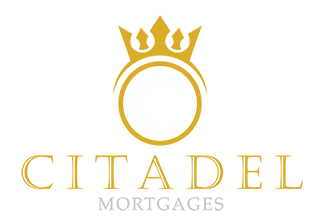When it comes to purchasing a home in Canada, understanding the different types of mortgages is crucial. Two common types of mortgages are conventional mortgages and high ratio mortgages. In this article, we will explore the differences between these two mortgage types, their advantages and disadvantages, and what you need to qualify for each.
What is a Conventional Mortgage?
When diving into the world of home buying and mortgages, one term that often comes up is a ‘conventional mortgage.’ But what exactly does it mean? Essentially, a conventional mortgage is a specific type of home loan where the homebuyer contributes a significant down payment, typically at least 20% of the purchase price or the appraised value of the property they are looking to acquire.
In a conventional mortgage, the borrower’s down payment is essentially their initial investment in their home. It signifies a substantial commitment to the property and reduces the risk for the lender. After the down payment has been made, the remaining 80% (or less) of the total home value is then financed by the lender, which is typically a bank or a mortgage company.
Fixed vs. Adjustable-Rate Mortgages
Within the category of conventional mortgages, there are also two main types: fixed-rate mortgages and adjustable-rate mortgages.
A fixed-rate mortgage is a mortgage where the interest rate remains the same throughout the term of the loan. This means that your monthly mortgage payments will remain consistent, providing stability and predictability. Fixed-rate mortgages are a popular choice for many homeowners who prefer a steady payment schedule.
On the other hand, an adjustable-rate mortgage (ARM) is a mortgage where the interest rate is subject to change over time. Typically, an ARM will have an initial fixed-rate period, followed by a period where the interest rate can fluctuate based on market conditions. This type of mortgage may be suitable for those who anticipate interest rates to decrease in the future or for those who plan to sell the property before the adjustable period begins.
What is a Non-Conventional Mortgage/High Ratio Mortgage?
A non-conventional mortgage, often referred to as a high-ratio mortgage, is a type of home loan that comes into play when a borrower cannot manage to make a down payment of at least 20% of the purchase price or the appraised value of the property. As the name suggests, a high-ratio mortgage is basically a loan in which the ratio of the loan to the value of the property being purchased is higher than usual. This situation typically arises when the down payment contributed by the borrower is less than 20% of the property’s purchase price or appraised value.
In a conventional mortgage, the loan-to-value ratio is lower because the borrower’s down payment is substantial. However, in a high-ratio mortgage, since the down payment is less, the loan-to-value ratio is higher, which inherently means more risk for the lender. Due to this increased risk, lenders typically require the borrower to have mortgage default insurance. This insurance, while it does protect the lender, adds an additional cost to the borrower.
While a high-ratio mortgage may not be the ideal situation for many, it does provide an opportunity for those with less savings to still become homeowners. It’s a balancing act between the desire to own a home and the ability to save for a substantial down payment. It’s always recommended for potential homeowners to carefully consider their financial situation and consult with a mortgage professional before deciding on the type of mortgage that will best suit their needs.
What is an example of a Conventional Mortgage?
Suppose you are purchasing a property worth $500,000 and have saved $100,000 for a down payment. In this case, you would be able to secure a conventional mortgage for the remaining $400,000.
By making a substantial down payment, you not only reduce the amount of money you need to borrow but also gain immediate equity in your property. This equity provides a sense of financial security and may make it easier to qualify for additional financing in the future should you need it.
Furthermore, opting for a conventional mortgage offers several advantages. Firstly, conventional mortgages typically have lower interest rates compared to other types of loans, such as FHA or VA loans. This means that you’ll end up paying less interest over the life of the loan, saving you a significant amount of money in the long run.
Secondly, conventional mortgages often have more flexible terms and conditions. Unlike government-backed loans, which come with specific guidelines and restrictions, conventional mortgages allow borrowers to negotiate terms that suit their individual needs. This flexibility can be particularly beneficial for borrowers with unique financial situations or specific property requirements.
Additionally, conventional mortgages do not require mortgage insurance if the borrower makes a down payment of at least 20% of the property’s value. This can result in substantial savings, as mortgage insurance can add a significant amount to the monthly mortgage payment.
Moreover, conventional mortgages offer a wide range of loan options, including fixed-rate mortgages and adjustable-rate mortgages (ARMs). Fixed-rate mortgages provide stability and predictability as the interest rate remains constant throughout the loan term. On the other hand, ARMs offer lower initial interest rates that adjust periodically, which can be advantageous for borrowers who plan to sell or refinance their property within a few years.
Lastly, conventional mortgages are widely accepted by lenders and can be used to finance various types of properties, including primary residences, second homes, and investment properties. This versatility allows borrowers to explore different real estate opportunities and make informed decisions based on their investment goals.
What is an example of a High Ratio Mortgage?
Now, let’s consider an example of a high ratio mortgage. Using the same purchase price of $500,000, if you were only able to provide a down payment of $50,000 (10% of the purchase price), you would need to finance the remaining $450,000 through a high ratio mortgage.
It is important to note that high ratio mortgages are required to be insured by the Canada Mortgage and Housing Corporation (CMHC), Genworth Financial Canada, or Canada Guarantee. This insurance protects lenders in case of default on mortgages with less than 20% equity.
The cost of mortgage default insurance is based on a percentage of the loan amount and varies depending on the loan-to-value ratio (LTV). The LTV is the ratio of the loan amount to the purchase price or appraised value of the property.
Here is an example of the mortgage default insurance premiums charged by CMHC:
LTV | Premium |
Up to 80% | 2.40% |
Up to 85% | 2.80% |
Up to 90% | 3.10% |
Up to 95% | 4% |
For instance, if you are purchasing a $400,000 home with a 5% down payment of $20,000, the mortgage default insurance premium would be $15,200. Increasing your down payment to 10% or $40,000 would reduce the premium to $11,160.
It’s worth noting that although mortgage default insurance adds to the overall cost, it allows lenders to offer lower mortgage rates as the risk of default is spread across multiple home buyers.
What are the advantages and disadvantages of Conventional Mortgages?
Conventional mortgages offer several advantages and disadvantages that borrowers should consider:
Advantages of Conventional Mortgages:
- No mortgage default insurance: Since the down payment is at least 20% of the purchase price, conventional mortgages do not require mortgage default insurance. This can save borrowers a significant amount of money.
- Lower interest rates: Conventional mortgages typically come with lower interest rates compared to high ratio mortgages. This can result in lower monthly mortgage payments.
Disadvantages of Conventional Mortgages:
- Higher down payment: Conventional mortgages require a higher down payment of at least 20% of the purchase price. This can be challenging for some borrowers who may struggle to save a larger sum of money.
- Stricter qualification requirements: Conventional mortgages often have stricter qualification requirements, including a higher credit score and a lower debt-to-income ratio. Borrowers with less favorable financial profiles may find it more difficult to qualify for a conventional mortgage.
What are the advantages and Disadvantages of High Ratio Mortgages?
High ratio mortgages also have their own set of advantages and disadvantages:
Advantages of High Ratio Mortgages:
- Lower down payment: High ratio mortgages allow borrowers to purchase a home with a smaller down payment, typically as low as 5% of the purchase price. This can make homeownership more accessible for first-time buyers or those with limited savings.
- Easier qualification: High ratio mortgages may have more lenient qualification requirements compared to conventional mortgages. This can be beneficial for borrowers with less-than-perfect credit or higher debt levels.
Disadvantages of High Ratio Mortgages:
- Mortgage default insurance: High ratio mortgages require mortgage default insurance, which adds to the overall cost of the mortgage. This insurance premium can be a significant expense for borrowers.
- Higher interest rates: While high ratio mortgages may have lower down payments, they often come with higher interest rates compared to conventional mortgages. This can result in higher monthly mortgage payments over the life of the loan.
What Do I Need to Qualify for Conventional vs. Non-Conventional Mortgages?
To qualify for a conventional mortgage, borrowers typically need to meet the following criteria:
- Down payment: A down payment of at least 20% of the purchase price is required for a conventional mortgage.
- Credit score: Lenders will assess the borrower’s creditworthiness, including their credit score. A higher credit score generally improves the chances of qualifying for a conventional mortgage.
- Debt-to-income ratio: Lenders will evaluate the borrower’s debt-to-income ratio, which compares their monthly debt payments to their monthly income. A lower debt-to-income ratio indicates a lower level of financial risk.
For high ratio mortgages, borrowers need to meet the following criteria:
- Minimum down payment: The minimum down payment for a high ratio mortgage is typically 5% of the purchase price.
- Mortgage default insurance: High ratio mortgages require mortgage default insurance, which protects the lender in case of default. The cost of this insurance is based on the loan-to-value ratio.
Which Mortgage Type is Right for Me?
Choosing between a conventional mortgage and a high ratio mortgage depends on your unique financial situation and goals. Here are a few factors to consider when deciding:
- Down payment: If you have a substantial down payment of at least 20%, a conventional mortgage may be a more attractive option as it eliminates the need for mortgage default insurance.
- Interest rates: If you have a higher credit score and meet the qualifying criteria for a conventional mortgage, you may benefit from lower interest rates. However, if your credit score is lower or you have a higher debt-to-income ratio, a high ratio mortgage may be more accessible.
- Monthly budget: Consider your monthly budget and determine how much you can comfortably afford for mortgage payments. Evaluate the impact of mortgage default insurance premiums and higher interest rates on your monthly expenses.
Ultimately, it is recommended to consult with a mortgage professional, such as Citadel Mortgages, to discuss your specific financial situation and goals. They can provide personalized advice and guide you in choosing the mortgage type that best suits your needs.
FAQs
Q: Can I switch from a high ratio mortgage to a conventional mortgage?
A: Yes, it is possible to switch from a high ratio mortgage to a conventional mortgage. However, you will need to meet the qualifying criteria for a conventional mortgage, including providing a down payment of at least 20% of the purchase price.
To Learn more about Switching Mortgages in Canada.
Q: Can I pay off my mortgage default insurance premium upfront?
A: Yes, borrowers have the option to pay their mortgage default insurance premium upfront or have it added to their mortgage amount. Paying it upfront can help reduce the overall cost of the mortgage.
Q: Is mortgage default insurance refundable?
A: No, mortgage default insurance is not refundable. The premium is a one-time payment made at the time of closing the mortgage.
Q: Can I use gifted funds for a down payment on a high ratio mortgage?
A: Yes, it is possible to use gifted funds for a down payment on a high ratio mortgage. However, the source of the gift and any applicable gift letter requirements should be discussed with your mortgage professional.
Q: How long does mortgage default insurance last?
A: Mortgage default insurance is a one-time payment made at the time of closing the mortgage. It covers the duration of the mortgage but does not need to be renewed annually.
In conclusion, understanding the differences between conventional mortgages and high ratio mortgages is essential when considering homeownership in Canada. Each mortgage type has its own advantages and disadvantages, and the right choice depends on your financial situation and goals. Consult with a professional mortgage broker in Canada to explore your options and make an informed decision.
Ultimately, making the right mortgage choice requires careful consideration and personalized advice from mortgage professionals. At Citadel Mortgages, our team of experienced mortgage brokers can guide you through the decision-making process and help you secure the mortgage that best fits your needs. Contact us today for personalized assistance.
To learn more about conventional mortgages and high ratio mortgages or to speak with one of our experienced mortgage brokers in Canada, contact Citadel Mortgages today. We are here to help you make an informed decision and find the perfect mortgage solution tailored to your needs.

Unexpected costs when buying a home in Canada
When buying a home in Canada, there are several unexpected costs that buyers should be aware of to avoid financial surprises. Some of the key

Considering An Early Mortgage Renewal
Why consider renewing your mortgage ahead of time? Well, one big reason is changes in interest rates. If rates drop, jumping on an early renewal

How to get a HELOC on an Investment Property in Canada
To get a Home Equity Line of Credit (HELOC) on an investment property, you need to follow these steps: 1. Know Your Finances: Estimate the

Expert Advice: Buying a House in Cash in Canada
In exploring the possibility of buying a house in cash in Canada, it’s essential to understand the various aspects that come into play. Here’s a

Average Down Payment for a House in Canada
According to the Canadian Real Estate Association, the average house price in Canada hit around $637,673 in August 2022. This means if you’re looking to

Assumable Mortgages: An In-Depth Look
Assumable mortgages are a unique financing alternative that could potentially save you thousands of dollars and simplify the home-buying process. But what exactly are they





